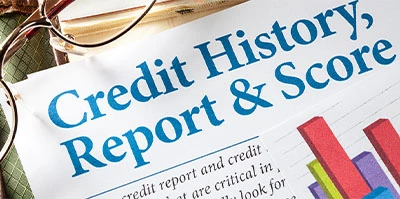All of us have hopes, dreams, goals or objectives that we want to achieve. Such dreams may be: to own a house, to buy a good car or to study in a prestigious, yet expensive, university. As different as they might sound compared to each other, all of them have something in common, and that is: the fact that you need money.
It is normal that we wish to have certain things that are not very cheap and it is also very common not to have such amount of money to afford them. Budgets are tight since there are strict priorities such as food, transportation, personal hygiene products, added to obligations such as family support payments, the electricity and water bills and taxes. The list can go on and on. So, what if in your list of priorities you want to incorporate one of those dreams? You can apply for a credit or loan.
“Who can help me?” You may ask.
Usually, banks, credit unions, the very own government and private borrowers can offer help in those cases, providing student loans, credit card, vehicle loans, among others since they have programs designed exclusively for those who do not have the money at hand to do such big investment. It very much important to point out that not everybody qualifies for every type of credit or loan because there are particularities implied in each one of them. Thus, it is necessary to know what is it that you want and start doing research regarding it to be aware of the situation and not get an unwanted surprise.
“What if in your list of priorities you want to incorporate one of those dreams? You can apply for a credit or loan”
That is why we wanted to give you some information so you know what is it that is needed to get the right to apply for a credit or a loan. A good answer for that is: It depends on the type of loan you need or you are asking for.
So, can you apply to a type of credit or loan? Find out it here, with Premier Consumer.
Credit card
The chances of getting a credit card approved can be estimated by knowing the criteria that Credit card issuers take into account when considering each applicant. It is not as simple as just filling out the form and waiting for it to be approved. The requirements are:
- You have to be old enough for a credit card. If you have not reached yet the age of majority, find an adult who can co-sign your application.
- Reliable source of incomehigh enough for the credit limit you’re asking for.
- Have a positive credit history. The better your credit score, the more likely it is that you’ll be approved.
- If your credit score is not the best, there are credit cards specially approvedfor applicants with bad credit history.
- Don’t have a lot of debt.
- Low debt-to-income (DTI)ratio. It indicates that you have enough income to pay back another credit card balance.
Credit And Credit Cards – Basic Concepts.
Mortgage / Home loan
Besides your personal information, there are 2 main requirements lenders look at when determining if you qualify for a home loan: your ability to repay the loan and your willingness to repay it.
- Ability to repay
It is the combination of your current employment (usually puts you in a better situation working in the same place for over 2 years) and your total income compared it to your debts.When your debt load is too high, you will most likely qualify for smaller loans and be charged higher interest rates.
- Willingness to repay
This is measured by examining your credit report, your intention to use the house, a very complete financial picture of your life – your income, assets –.
The interest you pay on your debt can quickly become very expensive. Use this calculator to help determine…Cost-of-Debt Calculator
Personal loan
This type of loans can be used for almost any purpose. However, it is common to use them for specific financial needs or covering emergency expenses that have to be paid.
The typical requirements for personal loans are:
- Minimum credit score of 640-750.
- Maximum debt-to-income: Up to 45% depending on income, loan amount and credit rating.
- Interest Rate: 8.50% – 18.0% depending on credit rating.
Auto loan
What you need to apply for a loan to buy an automobile is:
- Positive Credit Score and Credit Report. Although they are not very important as they are for home loans, for example.
- Proof of income.
- Low Debt-to-Income ratio.
- Collateral. Usually, the vehicle is its own collateral.
- Detailed information regarding the vehicle. State (new or used), the year of the vehicle, miles, and so on.
- Loan amount and down payment.
- Transaction type and loan terms.
- Proof of residence. Usually needed to let lendersknow where you can be found.
- Credit rating.
Should you lease or buy your car? Use this calculator to find out! We calculate your monthly payments and your total… Buy or Lease?









